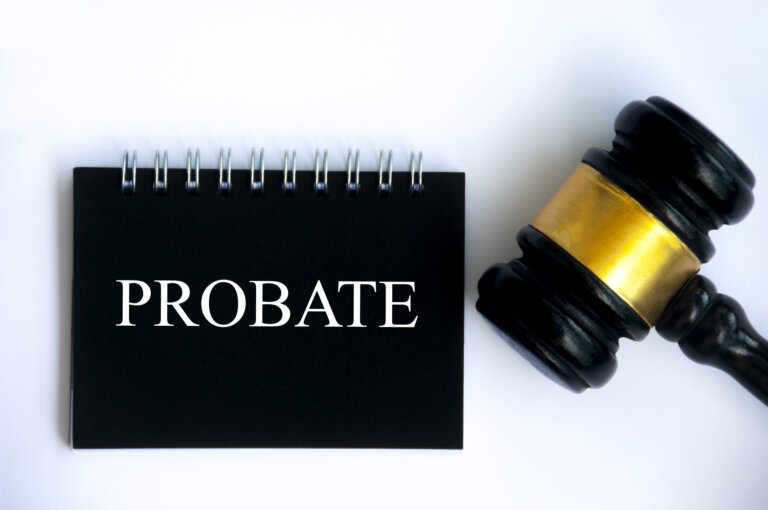Urban redevelopment zones in Texas present significant opportunities for real estate investment and community revitalization. These areas, often characterized by older infrastructure and underutilized properties, are prime targets for transformation through government incentives, private investment, and community planning. However, navigating the complexities of real estate transactions in these zones can become particularly challenging when probate laws come into play. This article explores the intersection of urban redevelopment and Texas probate law, offering a comprehensive guide to understanding the challenges, legal nuances, and strategies for managing real estate transactions in these unique areas. With a focus on legal, practical, and financial considerations, this guide aims to assist investors, developers, and families in making informed decisions while contributing to the revitalization of Texas communities.
Understanding Urban Redevelopment Zones in Texas
What Are Urban Redevelopment Zones?
Urban redevelopment zones, often referred to as reinvestment zones or opportunity zones, are designated areas targeted for economic development and revitalization. These zones typically:
- Include properties that may have fallen into disrepair or been abandoned.
- Offer tax incentives to attract investors and developers.
- Aim to improve infrastructure, housing, and economic opportunities for local communities.

Redevelopment zones can be found in cities like Houston, Dallas, Austin, and San Antonio, where older neighborhoods are undergoing transformation. Local governments often work with private entities to rehabilitate these areas, attracting new businesses and residents while preserving cultural and historical significance.
Real Estate Opportunities in Redevelopment Zones
Investing in real estate within these zones can be highly rewarding. Benefits include:
- Tax Incentives: Reduced property taxes or deferred capital gains taxes for properties in Opportunity Zones.
- High ROI Potential: Redeveloped properties in revitalized neighborhoods often see substantial appreciation.
- Community Impact: Redevelopment efforts can contribute to affordable housing, job creation, and improved infrastructure.
However, the process becomes more complex when properties within these zones are subject to probate proceedings. Understanding how probate impacts redevelopment is crucial for maximizing these opportunities.
Navigating Texas Probate in Redevelopment Zones
What Is Probate?
Probate is the legal process by which a deceased person’s estate is administered, debts are settled, and assets are distributed to heirs or beneficiaries. In Texas, probate can involve:
- Validation of the decedent’s will by a court.
- Appointment of an executor or administrator to manage the estate.
- Distribution of assets, including real estate, in accordance with the will or Texas intestacy laws if no will exists.
The probate process ensures that all legal and financial matters are resolved, but it can also create delays and challenges, especially for properties in urban redevelopment zones.
Unique Challenges in Redevelopment Zones
Real estate in redevelopment zones often presents specific challenges during probate, including:

- Heirship Issues: Properties in redevelopment zones may have unclear ownership due to lack of wills, resulting in complex heirship proceedings.
- Title Defects: Older properties may have unresolved title issues, including liens, boundary disputes, or missing documentation.
- Value Disputes: Determining the fair market value of properties in rapidly changing redevelopment areas can be contentious, especially if heirs have differing opinions.
- Community Interests: Urban redevelopment efforts may intersect with community-driven initiatives, zoning changes, or historical preservation requirements.
For example, a property in a redevelopment zone may be earmarked for affordable housing projects, but probate delays or disputes among heirs can stall these plans, affecting both developers and the community.
Legal Considerations for Real Estate in Probate
Heirship and Title Issues
One of the most significant hurdles in probate is establishing clear ownership. In redevelopment zones, properties may pass through generations without formal title transfers, creating legal complications. This is particularly common in older neighborhoods where families may have informally passed down properties without updating legal documents.
Key Steps to Resolve Heirship Issues:
- File an Application for Determination of Heirship: This legal process identifies and establishes rightful heirs under Texas intestacy laws.
- Conduct a Title Search: Work with a title company or attorney to identify potential defects or claims on the property.
- Obtain a Title Insurance Policy: Title insurance can protect against future claims and ensure smooth transactions.
By addressing these issues early, stakeholders can avoid delays and disputes that hinder redevelopment efforts.
Working with Executors and Administrators
The executor or administrator plays a critical role in managing probate properties. Real estate transactions in redevelopment zones often require:
- Court Approval: For the sale or transfer of estate properties, particularly if disputes arise among heirs.
- Comprehensive Appraisals: Accurate property valuation is crucial to ensure fair distribution and compliance with probate laws.
- Collaboration with Developers: Executors may need to work closely with developers to align redevelopment plans with the estate’s goals and community needs.
Addressing Zoning and Redevelopment Restrictions
Properties in urban redevelopment zones may be subject to unique zoning laws, land use regulations, or historical preservation rules. Executors and administrators must navigate these restrictions while complying with probate requirements.
For instance, a property designated as a historical landmark may require specific approvals before redevelopment can proceed. Understanding these nuances is vital for successful transactions.
Strategies for Investors and Developers

Conduct Thorough Due Diligence
Before investing in probate properties within redevelopment zones, investors should:
- Research Local Incentives: Understand the tax benefits and grants available for redevelopment projects.
- Investigate Property History: Identify potential legal or financial encumbrances tied to the property.
- Evaluate Market Trends: Analyze the growth potential and risks associated with redevelopment areas.
Due diligence ensures that investors are prepared for potential challenges, such as extended probate timelines or unexpected costs.
Partner with Experienced Professionals
Navigating the complexities of probate and redevelopment requires a team of knowledgeable professionals, including:
- Probate Attorneys: To handle legal proceedings and ensure compliance with Texas probate laws.
- Real Estate Agents: With expertise in redevelopment zones and probate properties.
- Title Companies: To resolve title issues and facilitate secure transactions.
- Urban Planners: To ensure redevelopment plans align with local zoning and community goals.
Utilize Alternative Dispute Resolution
Disputes among heirs or other stakeholders can delay probate and jeopardize redevelopment projects. Mediation or arbitration can help resolve conflicts efficiently, reducing the risk of litigation.
Additionally, creating a clear communication plan among all parties involved can prevent misunderstandings and foster cooperation.
Case Study: Successful Redevelopment in a Texas Probate Property
To illustrate the potential of navigating probate in urban redevelopment zones, consider the following example:
Scenario: A historic property in a designated Opportunity Zone in Houston was left to multiple heirs without a clear will. The property had significant title issues and zoning restrictions but also strong redevelopment potential due to its location.
Resolution Steps:
- Heirship Determination: A probate attorney filed an heirship application, establishing clear ownership among the heirs.
- Title Resolution: A title company resolved outstanding liens and boundary disputes.
- Community Engagement: Developers worked with the local zoning board and neighborhood associations to align redevelopment plans with community goals.
- Redevelopment Outcome: The property was transformed into affordable housing units, benefiting both the heirs and the community while leveraging Opportunity Zone tax incentives.
This case highlights the importance of collaboration, legal expertise, and strategic planning in achieving successful outcomes.
Resources for Navigating Probate and Redevelopment
Legal and Financial Support
- Texas State Bar Probate Resources: Comprehensive guides and legal assistance for probate matters.
- Urban Land Institute (ULI) Texas Chapter: Support for urban redevelopment projects.
- Texas Historical Commission: Guidance on preserving historically significant properties in redevelopment zones.
Community and Redevelopment Programs
- Opportunity Zones Program: Federal incentives for investing in designated zones.
- Texas Department of Housing and Community Affairs (TDHCA): Support for affordable housing initiatives.
- Local TIRZ Programs: Information on tax increment reinvestment zones in major Texas cities.
Educational Resources
- Real Estate Investment Associations: Local groups offer workshops and networking opportunities for investors.
- Online Courses: Platforms like Coursera or Udemy provide courses on probate law and real estate investment strategies.
Conclusion
Real estate in urban redevelopment zones offers immense potential for economic growth, community revitalization, and profitable investments. However, when probate proceedings intersect with these opportunities, the complexities can multiply. By understanding Texas probate laws, addressing heirship and title issues, and leveraging redevelopment incentives, stakeholders can navigate these challenges effectively.
Investors, heirs, and community members all have a role to play in ensuring that probate properties in redevelopment zones contribute to sustainable growth and equitable outcomes. With careful planning, collaboration, and a commitment to community-centered redevelopment, the revitalization of Texas’ urban areas can benefit everyone involved.







